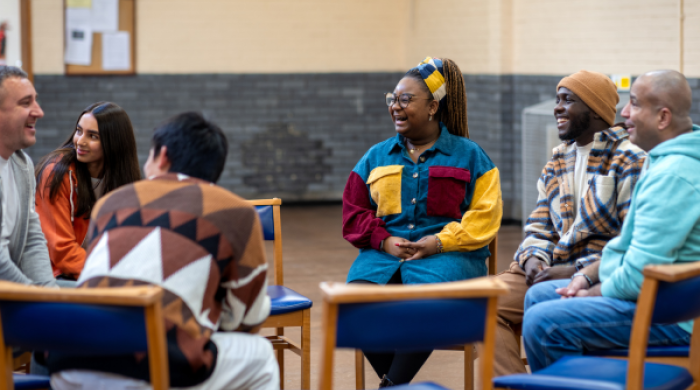
The goal of this initiative is to inform policy in the health sciences through evidence-based research. Selected projects include:
- Evaluating potential effects of a policy prohibiting large sizes of sugar-sweetened beverages on the consumption of calories from beverages at fast-food restaurants.
- Evaluating the effects of taxation and labeling policies on consumer food and beverage purchases.
- Evaluating how restaurant grading in New York City affects food safety compliance, receipt of fines, and revenues.
- Estimating the relationship between Supplemental Nutrition Assistance Program (SNAP) benefits and health outcomes for students in grades K-8.
Grants and Projects
Biofeedback speech therapy
The Biofeedback project, funded by the NIH, evaluates the effectiveness of in-person versus telepractice delivery of biofeedback intervention for speech sound disorder.
Auditory perception for speech sound errors
Drs. Tara McAllister and Jennifer Hill strive to improve treatment outcomes for children with Residual Speech Sound Disorder.
Sugary Beverage Taxes
Drs. Beth Weitzman and Todor Mijanovich are part of a team of investigators studying the impact of sugar-sweetened beverage taxes on changes in prices paid and calories consumed in fast food restaurants.
Integrated Care Reimagined for Serious Mental Illness
A research team, including Dr. Tod Mijanovich, is evaluating an intervention for individuals with serious mental illness aiming to improve healthcare by providing a holistic approach to primary care.
Opioid Treatment for Transition-Age Adults in Medicaid
Dr. Mijanovich is part of study that investigates the quality of opioid use disorder treatment for vulnerable transition-Age adults (ages 18–25), who currently have low rates of effective treatment adherence.
Person-centered care system for addictions
Dr. Tod Mijanovich and NYU researchers are providing statistical expertise to a New York agency that is launching a Quality Measurement and Management (QM2) strategy to improve the addiction treatment system.
Substance abuse disorders and homelessness
Dr. Tod Mijanovich is part of two NIH funded grants investigating novel interventions to support people experiencing homelessness and substance abuse.








